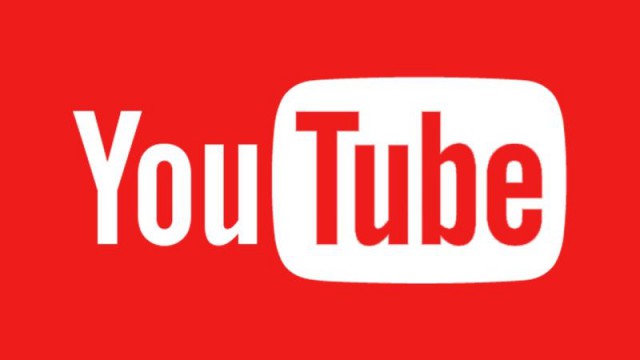
YouTube gets in-app messaging and direct video sharing
Google is adding a new social component to YouTube, rolling out in-app messaging and direct video sharing on Android and iOS. The new features are available only in Canada at the time of writing this article, but Google says that they will be (eventually) released worldwide.
Why is Google introducing those features? Simple. In today's landscape, it is no longer enough to let users watch videos and reply back and forth in the comments section. If you look at Facebook, it is also super easy for users to connect after having a conversation, which then lets them privately share content, among other things. The result? They spend more time using the service.

BBC wants to tackle fake news with Reality Check team
Fake news has become a serious problem recently, with Facebook blamed for helping the spread of stories that are factually incorrect. The social network has already announced that it wants to take steps to tackle the problem, and now the BBC is joining the fight.
The BBC already has a series known as Reality Check, and the plan is to expand this into a permanent feature that will be used to fact-check stories that appear on Facebook and other social media.

How to protect yourself from the WhatsApp 'backdoor'
Earlier today we reported about a security problem in WhatsApp that means it is possible for messages to be intercepted and read by others. The so-called 'backdoor' takes advantage of the fact that WhatsApp's implementation of end-to-end encryption makes it possible to resend encrypted messages using different security keys, allowing for third parties to read them.
What is concerning many people is the fact that (by default, at least) WhatsApp does not alert users when a message is resent using a different key -- which would be a warning of something going on. Here's what you need to do to ensure you are told when the key changes.
'Backdoor' in WhatsApp's end-to-end encryption leaves messages open to interception [Updated]
Facebook has long-claimed that its WhatsApp messaging service is completely secure and messages cannot be intercepted thanks to its use of end-to-end encryption. But researchers have unearthed what they call a serious security flaw that makes it possible to read encrypted messages.
Based on Open Whisper Systems' Signal Protocol, the unique security keys used to implement end-to-end encryption should keep messages secure. But WhatsApp can force offline users to generate new keys and this could allow Facebook -- and third parties -- to read messages.
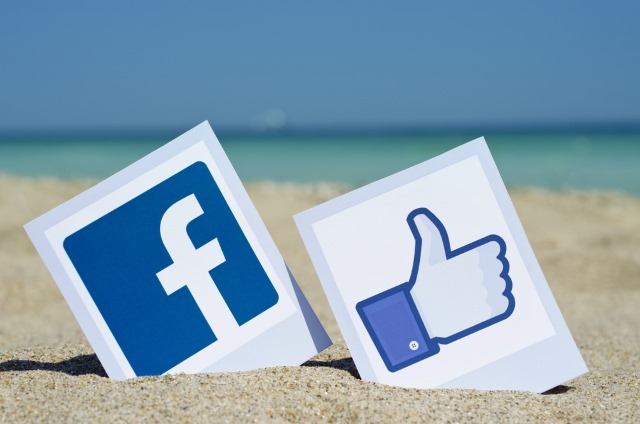
Now it's easy to secretly edit Facebook posts without anyone noticing
There is a lot of talk about the possibility of editing tweets on Twitter at the moment, but an editing function has been available on Facebook for ages. With the ability to edit posts that people can comment on come concerns, and with this in mind Facebook has always let you know when a post you're reading has been amended. Until now...
Without warning, the label which advised of edits has vanished. This means that it is now possible to make surreptitious changes to posts and many people will be completely unaware of what you have done.

Apple is more environmentally-friendly than Facebook, Google and Microsoft
Greenpeace has crowned Apple the most environmentally-friendly tech company for the third year in a row. The Cupertino, Calif.-based giant is well ahead of most of the big players in the field, being one of just three companies to get an "A" grade from the NGO, alongside Facebook and Google.
With a score of 83 percent, Apple has the highest clear energy index, using little natural gas, coal and nuclear energy. Facebook comes second with 67 percent while Google takes the last place on the podium with a score of 56 percent. Both companies rely more on natural gas, coal and nuclear energy than Apple.
Snapchat thumbs its nose at Brexit, opens international HQ in UK
Brexit was supposed to terrify companies out of doing business in the UK, and in some instances this has been true. But Snapchat is bucking the trend, opting to set up its international headquarters not in Ireland (as many companies do to avoid huge tax bills), but in the UK.
Snap Inc, the company behind SnapChat, will open its London offices under the name Snap Group Limited. The company says it chose the UK capital because of its "strong creative industries", and the move will be seen by many as a something of a coup for post-EU referendum Britain.
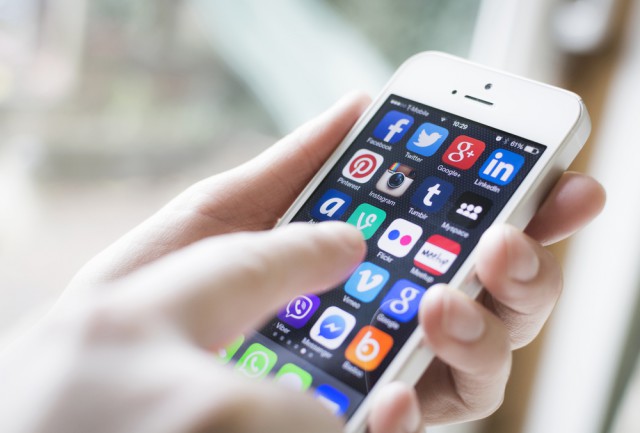
Nielsen: Top 10 smartphone apps of 2016 -- Facebook and Google dominate
When it comes to mobile operating systems, apps still reign supreme. To highlight which ones were most popular in 2016, Nielsen conducted a study of Android and iPhone smartphone users.
Not surprisingly, two major players in the mobile space -- Facebook and Google -- lead the pack.

Facebook promotes fake news by activating Safety Check based on false reports of Bangkok bomb
The problem of fake news on Facebook has been highly publicized recently, and while the social network says it is doing what it can to tackle the issue, it seems the company is actually adding fuel to the fire.
Based on false reports of an explosion in Bangkok, Thailand, Facebook's Safety Check feature was activated. This in turn helped to give the initial story authenticity, helping with the spread of fake news. Safety Check has itself proved to be a controversial feature, and combined with flakey news algorithms, it resulted in a perfect storm.

US government starts asking foreign visitors for their Facebook, Twitter and other social media info
In a move that has drawn criticisms from privacy groups, the US government this week started to ask some foreign travelers arriving in the country to hand over their social media account details.
Since Tuesday, visitors to the US arriving under the visa waiver program have been asked if they will provide "information associated with your online presence". Travellers are prompted to provide their usernames for the likes of Facebook, Google+, Instagram, LinkedIn and YouTube, and while the handing over of information is currently marked as "optional", it's not clear what the consequences of failing to provide it may be, or if there are plans to make it mandatory.

Stop lurking on Facebook (maybe ditch it altogether!) and you'll have a happier Christmas
For all of the talk of it being a social network, Facebook can be a lonely and depressing place. Despite this, many people use the site as somewhere to 'lurk', something which research shows can be psychologically harmful.
A study by the University of Copenhagen found that emotions become more positive and life-satisfaction increased in a group of people who took a break from the site. The effects were more pronounced in heavy users of Facebook, in those who suffered from envy, and those who failed to interact with other users. The advice for some people is that they might want to "consider quitting Facebook for good".

Facebook is the preferred holiday marketing tool of smaller businesses
Smaller businesses are increasingly recognizing the importance of digital marketing and Facebook is their platform of choice for the holiday period.
This is among the findings of a report by marketing platform GetResponse which reveals that 60 percent of SMBs increased their digital marketing budget for this year’s holiday season.
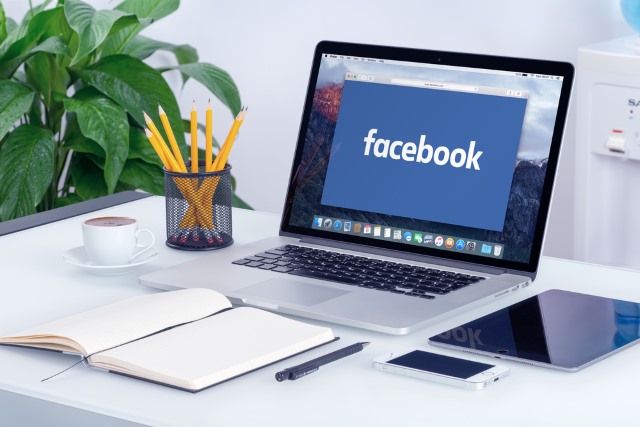
Facebook received 27 percent more government requests for information in 2016
Facebook has released its Global Government Requests Report for H1 2016, and it shows that there has been a significant increase in the number of government requests for account data.
Compared to the first half of 2015, Facebook received 27 percent more requests globally. Most of these 59,229 requests came from the US government, and more than half of them (56 percent) included a gagging order preventing Facebook from notifying the affected users.
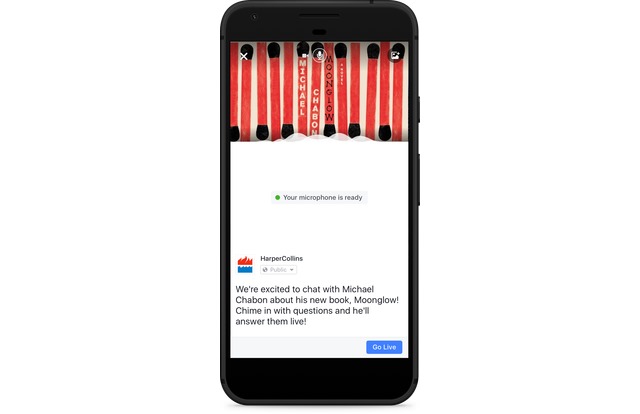
Facebook introduces Live Audio in conjunction with the BBC
It's not all that long since Facebook started to allow users to broadcast live video to their friends and followers -- now the social network is doing the same with audio. Things are looking good for mobile users, particularly those with Android devices.
Starting off with partners such as the BBC World Service, LBC and Harper Collins, Live Audio is something of a blend of podcasts and radio. To start off -- just as happened with live video -- audio broadcasting will only be available to a select group of companies, but there are plans to open it up to everyone.

Electronic Frontier Foundation reveals its privacy and security wishlist for 2017
With the end of the year approaching, many people are looking back over 2016 and picking out the highlights. Others, however, are looking back to see what can be learned for 2017; this is exactly what digital rights group Electronic Frontier Foundation is doing.
EFF has drawn up a wishlist for 2017, outlining some of the things it hopes technology companies like Google, Twitter, Apple and Facebook will take action on. There are lots of familiar names on the list, and while some of the requests might seem a little hopeful, there is certainly scope for some of the changes to be implemented.
